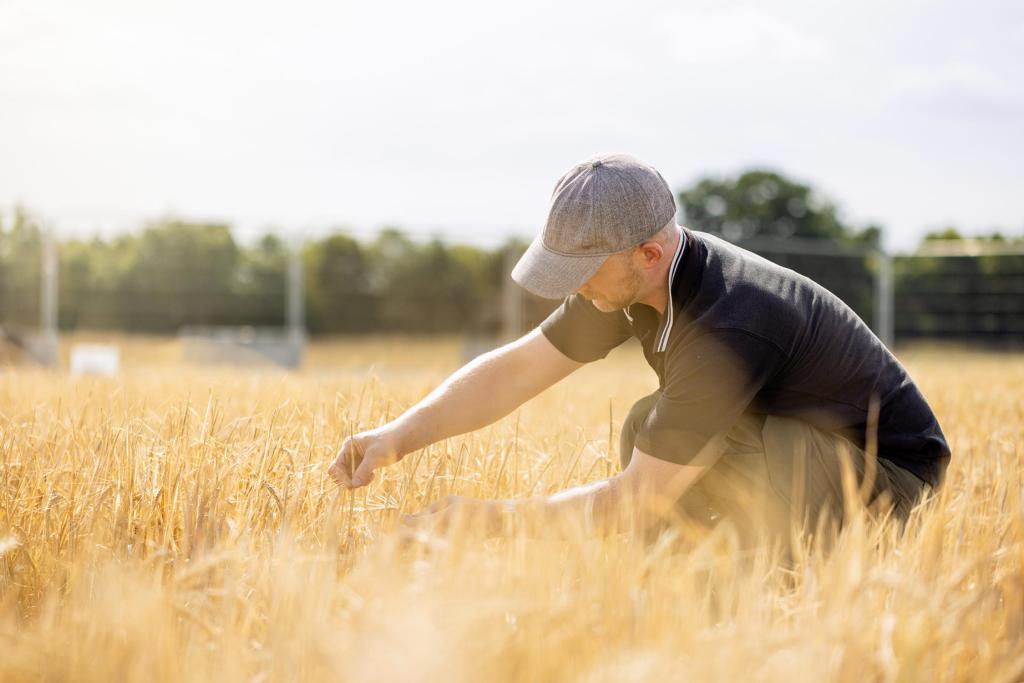A Cambridge-led consortium has received US$35m (£28m) over five years to develop sustainable solutions to increasing the yields of small-scale farmers in sub-Saharan Africa, without the need for costly and polluting inorganic fertilisers.
The grant, from Bill & Melinda Gates Agricultural Innovations (Gates Ag One), will enable researchers led by the University of Cambridge Crop Science Centre to engineer plants to take advantage of naturally occurring interactions with micro-organisms – fungi and bacteria – that help in the uptake of nutrients from the soil and air.
“African agriculture is at an inflection point, with vastly increasing demand at a time when supply is at risk, especially due to a changing climate,” said Giles Oldroyd, Director of the Crop Science Centre and Russell R Geiger Professor of Crop Science.
“The outcomes of this work have the potential to see gains as great as those from the Green Revolution, but without relying on costly and polluting inorganic fertilisers.
“Increasing sustainable production of crops in small-holder farming systems, like those in sub-Saharan Africa, directly addresses some of the worst poverty on the planet.”
Nutrients are vital to the success of crops. However, the land of small-scale farmers in sub-Saharan Africa is depleted of nutrients. Artificial fertilisers are too expensive for small-scale farmers to buy, and their livestock numbers too low to produce sufficient levels of manure to nourish their crops. This leads to deceasing yields overtime, which affects livelihoods. Average maize productivity in sub-Saharan Africa is less than a quarter of that in the USA.
The Engineering the Nitrogen Symbiosis for Africa (ENSA) research programme utilises natural symbioses between plants, soil fungi and bacteria, that deliver nutrients to the plant. By leveraging these relationships ENSA aims to engineer crops to make better use of nutrients already present in the air and the soil. This would allow sustainable increases in crop yields, potentially revolutionising smallholder farming in low-and-middle-income-countries, while providing a viable solution to sustainable and secure food production in high-income countries.
The grant funds the Engineering the Nitrogen Symbiosis for Africa (ENSA) research programme. ENSA is a Cambridge-led international collaboration with partners: University of Oxford, UK; NIAB, UK; Royal Holloway University of London, UK; Aarhus University, Denmark; Wageningen University and Research, The Netherlands; University of Freiburg, Germany; University of Toulouse III Paul Sabatier, France; University of Illinois, USA; Pennsylvania State University, USA.
A not-for-profit subsidiary of the Bill & Melinda Gates Foundation, Gates Ag One was created to leverage global crop science to meet the needs of smallholder farmers in sub-Saharan Africa and South Asia. It focuses on accelerating research that enhances the biological processes of six priority food crops: cassava, cowpea, maize, rice, sorghum, and soybean.
“The pioneering work of ENSA is fundamental to levelling the playing field for smallholder farmers in Africa, leveraging the latest crop technology to ensure all communities have the chance to thrive,” said Joe Cornelius, CEO of Gates Ag One. “Breakthrough advances in crop science and innovation mean intractable challenges like nutrient uptake and soil health need not hold back agricultural development. We’re delighted that Gates Ag One can support ENSA to continue its work to meet the needs of smallholder farmers.”

